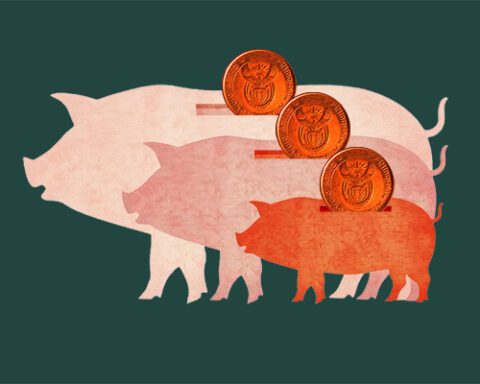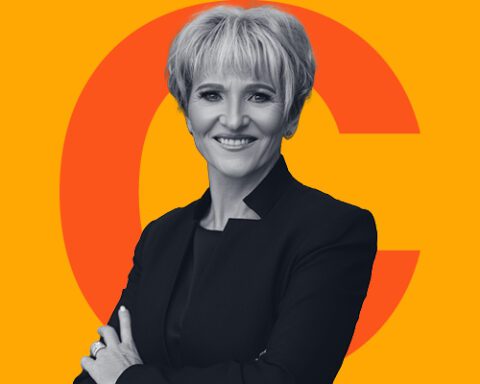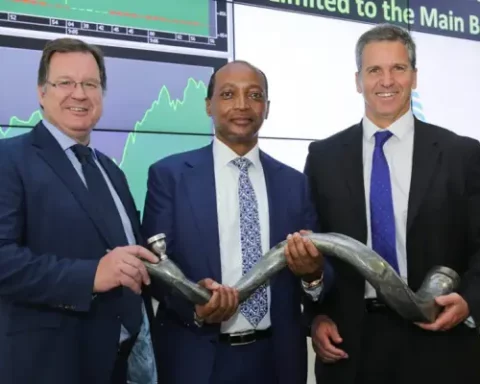It’s a great big investment universe out there, but out of the morass of businesses throughout the great wide world, six international stocks shine out their brilliance like the stars they are. Well … not quite, because there is a slight disagreement among the Currency team specifically about pharmaceutical stocks, with Giulietta Talevi recommending Eli Lilly and Ann Crotty suggesting shorting them all. Yes, all of them. Harsh. But read on.
Eli Lilly (LLY:NYQ)
The themes of the past couple of years are still well intact: AI, Big Tech and weight-loss wonder drugs, as peddled by the likes of Novo Nordisk (Ozempic) and Eli Lilly (Mounjaro). It can’t not help that Donald Trump’s chief counsel and government everyman, the world’s richest man Elon Musk, is now taking Mounjaro, and has argued in favour of expanding access to the drugs to more Americans.
Clearly, you can never be too rich or too thin.
Crucially, last year, in a rare moment of political bipartisanship, the US House of Representatives proposed expanding coverage for patients who have a prescription for the anti-obesity drugs of more than one year, as part of a plan to designate obesity as a disease. And that’s notwithstanding the position taken by another Trump adviser, Robert F Kennedy Jnr, who’d prefer that Americans simply eat better (on this point we cannot concur more).
The US Food and Drug Administration also recently approved Eli Lilly’s weight-loss medicine Zepbound to treat sleep apnoea in obese adults.
Eli Lilly’s third-quarter revenue for 2024 rose 20% to $11.4bn, thanks largely to Mounjaro and Zepbound. But its oncology, immunology and neuroscience portfolios also delivered punchy sales growth of 17%.
Full-year sales are pegged at between $45.4bn and $46bn and earnings are seen at between $12.05 and $12.55 a share. Eli Lilly shares have come off significantly from their highs of 2024 but we think, given the demand for its product, there’s opportunity to pick up again this year. Price targets on the stock at present range from just over $1,000 to $1,200. – Giulietta Talevi
All pharma stocks
There is a possibility Donald Trump’s second presidency won’t bring much change. Perhaps on January 20, President Trump will realise he cannot do without the backing of the titans that control the US economy.
And so, it’s possible that the sectors and special interests that currently dominate the US economy – pharmaceuticals, banking, tech, food – will be left alone to continue on their merry ways. Merry ways that include lobbying and providing massive amounts of money to political parties.
Or maybe Trump won’t care about upending what seems to be a decades-old relationship between big business and government as he pushes the interests of his voters rather than funders. Who knows?
Investors certainly care. And they seem to care most about Robert F Kennedy Jr, Trump’s choice to lead the US department of health and human services (DHHS). In the days after Trump announced RFK’s nomination, shares in pharmaceutical companies across the globe were hit as investors contemplated the impact of a pharmaceutical-critical head of DHHS.
Vaccine-makers were the hardest hit, with Moderna shedding 7% the day after the announcement, taking the fall to a full 30% since Trump’s election victory on November 5. Pfizer held up better, but the 4.5% one-day hit must have hurt shareholders. Novavax, whose only product is a Covid vaccine lost almost 2%.
It wasn’t just US pharma stocks that suffered. In Germany, BioNtech tumbled 10%, the UK’s GSK (GlaxoSmithKline) was down 3.9% and France’s Sanofi shed 3.3%.
In some instances – GSK – the share price weakness wasn’t entirely attributable to news of RFK’s nomination. But what has become clear is that unless or until Trump demonstrates a solidly pro-pharmaceutical stance, investors are going to be wary about pumping money into the sector.
It’s not just the pharmaceutical industry that’s in Trump and RFK’s sights. As the DHHS nomination was announced, Trump said the plan is for the department to play “a big role in helping ensure that everybody will be protected from harmful chemicals, pollutants, pesticides, pharmaceutical products and food additives that have contributed to the overwhelming health crisis in this country”.
So, now seems to be the time to go short not only on pharmaceutical stocks but also chemical and food shares. And perhaps trawl through a list of wellness-related shares for opportunities to go long. But always keep a wary eye on Trump for a change in direction. – Ann Crotty
BlackRock (BLK:NYSE)
Those who were at the Inanda Country Club last October to hear BlackRock, the US firm managing $11.5-trillion, outline its investment plans for a new world of AI will have seen a company that ponders deeply about how this new landscape will affect both society and business.
Larry Fink, BlackRock’s CEO, told Discovery’s Adrian Gore that the US will continue to dominate investing over the next few years as its capital market is still streets ahead of pretenders like China. “The US moat is getting bigger and if you just look at what is going on relating to technology and AI, it is driven by American companies,” he said. “I do believe that AI is going to become the next Industrial Revolution.”
So, what BlackRock has done is boost its exposure to companies on the outskirts of this revolution without which it cannot happen: the data centres, the industrial hardware companies, and those supplying the direct AI firms. One data centre, Fink said, can cost as much as $50bn.
Already, this bet on scale is working for BlackRock, which saw its stock rise 26% last year. The trajectory is solid too: its third-quarter accounts, released late last year, revealed that its revenue in those three months had risen 15% on the year before, with its net income up marginally to $1.63bn.
For South Africans, BlackRock can often seem inscrutable, but the way in which the company is already capitalising on AI, and thinking deeply about what this means for the future of markets, means it’s an easy buy. – Rob Rose
CrowdStrike (CRWD:NASDAQ)
Google a list of the recent big cyberattacks and prepare to be afraid, very afraid. From hackers infiltrating the UK ministry of defence’s payroll system to the alleged takedown of Ticketmaster that caused a crisis among Swifties trying to buy ticket for Taylor Swift’s Eras tour, things are wild out there. In just the past few days, it was the US Treasury itself which came under attack from Chinese hackers.
Cybersecurity Ventures says that, from this year, cybercrime is going to cost the world $10.5-trillion annually. Between deepfakes and man-in-the-middle attacks, there is so much to combat, and the threats are morphing and growing constantly.
Cybersecurity firms are the defence companies of the modern era, since we need these nerdy gunslingers combating this virtual evil.
While there are quite a few businesses on the sharper edge of this industry, my pick is the cybersecurity one-stop shop, the Texas-based CrowdStrike.
Okay, yes, last year it did botch an update that led to an outage of its security platform that messed with a whack of customers, including Delta Airlines – and unsurprisingly that didn’t do great things for investor or customer confidence.
But given the tailwinds for this industry, that can only represent a buying opportunity. Financially, the company is more buoyant than ever, and grew its revenue by 29% last quarter. Expect this to continue. – Sarah Buitendach
Access Holdings (ACCESSCORP:LAG)
Access Holdings, the owner of Nigeria’s largest bank by assets and retail customers, is my international stock choice. The bank has aggressively expanded, acquiring 12 businesses in six years, including Bidvest Bank, for $160m. Its goal? To rank among Africa’s top five financial services firms by 2027 – a bold ambition, given its assets are less than a third those of Nedbank, South Africa’s fourth-largest lender.
Access Bank now serves 60-million customers in more than 20 countries, including China, the UK, South Africa and the UAE. S&P Global expects a stellar 30% return on equity (ROE) for 2024, supported by strong interest margins and reduced credit-loss provisions. For context, Africa’s largest lender, Standard Bank, has an ROE of 19%. In December, Access raised $230m through a share sale in which demand was more than double the amount of securities on sale. The proceeds will boost its capital well above regulatory requirements and will fuel its expansion.
Analysts are optimistic: five of the six tracked by Market Screener rate the stock a “buy”, with a 30% potential upside from its current price of 24.50 naira. While the stock trebled in 2023, it ended 2024 little changed after vaulting to a record high last January.
The primary risk lies in Nigeria’s currency. The naira depreciated sharply after President Bola Tinubu’s reforms allowed the currency to trade freely on the open market. He also made other reforms, including the removal of fuel subsidies, which have brought much pain to Nigerians but improved investor confidence due to their long-term economic benefits. This has resulted in increased investor flows and foreign investment.
With Access Bank still reliant on Nigeria for half of its business, there’s reason to be optimistic about the lender’s growth trajectory. For me, it’s a calculated bet on a bank with vast potential and an improving macroeconomic backdrop. – Vernon Wessels
Nu Holdings (NU:NYSE)
Nubank just jumped up on South Africa’s radar this year after it bought a stake in local digital bank Tyme. And like Tyme, Nubank has for some time now been revolutionising banking in developing markets. The fit between the companies is very strong with Nubank focused on Latin America and Tyme on South Africa, and now expanding into Asia.
From a share price point of view, it’s been a weird year for Nu Holdings, after listing on the New York Stock Exchange and being up almost 90% over the year as at October. But then veteran investor Warren Buffett sold 20% of his stake, and that rattled investors and sparked a major pullback. The share price ended the year about 30% up.
But ignore the share price; just look at the operations. Revenue up 60%, earnings per share up 80%, year on year to September.
Most of Nu’s operations are in Brazil currently, with more than half of Brazilian adults using the financial platform. But Nu CEO David Vélez said in the third-quarter earnings call that Mexico “could be another Brazil” for the company. And Nu is gaining momentum in Colombia.
In a sense, the share price pullback could be a rare moment to buy at a merely bullish price rather than an exorbitant one. And by the way, Buffett is still holding 80% of his stake. – Tim Cohen
ALSO READ: Nothing better than home brew: Local stocks to consider for 2025
ALSO READ: Go long crocodile skins: Wild investments from the Currency team for 2025
Sign up to Currency’s weekly newsletters to receive your own bulletin of weekday news and weekend treats. Register here.









